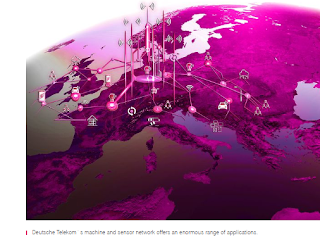Deutsche Telekom LTE-M is now commercially available across Germany in both post-paid and pre-paid IoT offerings, including its Business Smart Connect LPWA and M2M tariffs.
Deutsche Telekom already completed first certifications of a handful of LTE-M chipsets and modules, thereby enabling faster user time-to-market and connectivity quality.
 “LTE-M gives our customers the opportunity to develop new solutions where previous technologies had their limitations,” says Rami Avidan, CEO of Deutsche Telekom IoT GmbH. “The technology is a firm part of our overall IoT network portfolio. It is 5G-ready and therefore future-proof – ideally positioned to drive innovation for the Internet of Things even further.”
“LTE-M gives our customers the opportunity to develop new solutions where previous technologies had their limitations,” says Rami Avidan, CEO of Deutsche Telekom IoT GmbH. “The technology is a firm part of our overall IoT network portfolio. It is 5G-ready and therefore future-proof – ideally positioned to drive innovation for the Internet of Things even further.”
In comparison to NB-IoT, LTE-M offers higher data rates (up to 350 Kbps), lower latency, connected mobility (i.e. the ability of a technology to do handover between cells), and SMS support.
https://www.telekom.com/en/media/media-information/archive/deutsche-telekom-launches-lte-m-in-germany-604370
Deutsche Telekom launches NB-IoT in Germany
"Our machine and sensor network offers an enormous range of applications," says Kai-Ulrich Deissner, Head of International Technology & Services Delivery, Deutsche Telekom. "Mobility, security or waste management are just a few areas that the new network revolutionizes. It is an important prerequisite for the development of mobile IoT in the years to come."
Deutsche Telekom is also introducing NB-IoT roaming in Europe. As a first step, the national companies in Germany, Austria, the Netherlands, Hungary, Slovakia and the Czech Republic support roaming among each other. Other countries will follow.
Nine European subsidiaries and the USA have introduced NB-IoT so far. The Netherlands completed their nationwide rollout in mid-2017. Austria and Slovakia have been covered nationwide since 2018.













